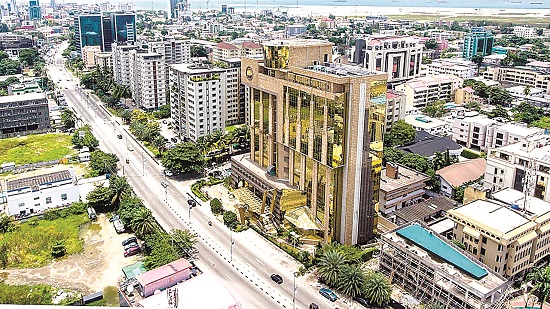This post has already been read 1143 times!
•Association queries increased borrowing amid revenue potential
The Society of Women in Taxation (SWIT), yesterday, raised concern that 70 per cent of the N5.2 trillion taxes collected in 2018, came from Lagos State alone.
The development, which shows a lopsided tax base, is also an indication that the long four-year tax reforms and campaign have less impact in the remaining 35 states given the huge untapped potential.
The Pioneer Chairperson of SWIT, Justina Okoror, during the 2019 yearly seminar of the of the group, which forms part of the yearly tax conference of the Chartered Institute of Taxation of Nigeria (CITN), said it is worrisome that 35 states and the FCT contributed a paltry 30 per cent of the total.
She mentioned that to broaden the nation’s tax base, there was the need to expand tax collections into the interior parts of Nigeria, to increase the number of people in the tax pool.
“For instance, out of the trillions of naira generated by the Federal Inland Revenue Service (FIRS), 70 per cent came from Lagos, which means that 35 states plus FCT contributed only 30 per cent.”
“That also means that there are so many states with nearly no productive activities happening, and by implication are not paying tax. If Lagos decides to become a sovereign state, Nigeria will not be able to generate any revenue from tax,” she said.
She noted that it’s mostly in the cities that there is a record of organisations paying tax, but in suburbs and local councils, there are no tax collections.
Stressing the need to expand the tax base, Okoror said with some states mining gold, diamond, and other natural resources, there is an urgent need for government to go into the hinterland and increase their revenue base, especially from private companies.
“Government must take seriously tax revenue generation just like what is being done with crude oil. They should go into these places with natural resources and make it another revenue base,” she said.
She however, called on the Federal Government to engage governors on how to make their states viable, to attract investors and create more productive activities that would increase the tax base and revenue generation.
Furthermore, the incoming National Chairperson of SWIT, Kudiirat Abdulhamid, queried government’s increased borrowing, when potential revenue generation is lying idly, saying the increasing obligations is tying the nation’s resources to payment and servicing of the loan that is being taken.
She maintained that revenue generation through taxation is more sustainable, especially when such resources are judiciously tailored towards development projects that would benefit the people.
Stressing that it is the responsibility of government to provide basic amenities for the comfort of the citizens, while the citizens have the responsibility to pay directly or indirectly for it, she said the present situation in the country is not inspiring.
“I agree with people complaining over government borrowing, but if citizens pay taxes and it is judiciously utilised for provision of this services, people will be eager to pay more. But when government borrows money without providing infrastructures, citizens would become angry,” she said.
[The Guardian]



